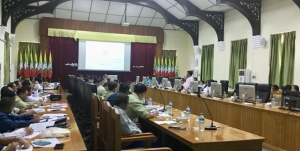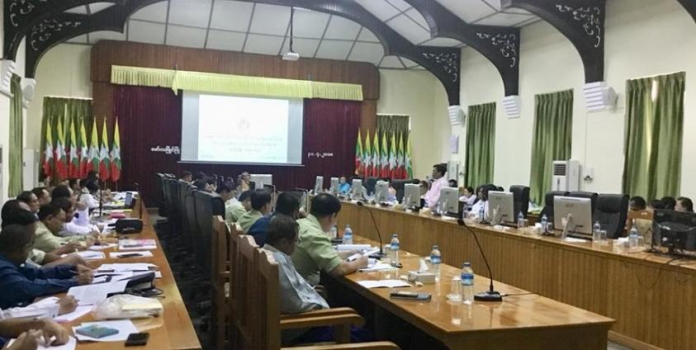The national-level political dialogue for ethnic Mon will strive for the emergence of a strong federal principle, according to Nai Aung Ma Nge from the Mon State National-Level Political Dialogue Supervisory Committee.
“Our supervisory committee will provide guidance in setting down a firm federal principle in the four major sectors of politics, economic, social, and land and [natural] resources,” Nai Aung Ma Nge, who is also spokesperson of the New Mon State Party (NMSP), told the Mon News Agency.
The opening and closing ceremonies of the national-level political dialogue for ethnic Mon will be held at the gymnasium in Ye on May 5-7 and discussions on the four major sectors will be held separately in the surrounding areas – No 1 Basic Education High School (B.E.H.S 1), Tit Palin Hnit Su Community Hall and Mon Community Hall, according to him.

“Five hundred delegates have been invited to discuss the four major sectors. Union Ministers, officials from the NRPC (National Reconciliation and Peace Center), PC (Peace Commission), and JMC (Joint Monitoring Committee), which are groups involved in the peace process, the union-level supervisory committee, ethnic armed organizations, and political parties will participate in the opening ceremony. We expect between 800 and 900 people to attend the opening ceremony,” said Min Aung Htoo, also known as Banyar Mon, secretary of the Mon National-Level Political Dialogue Coordination Committee.
He added that national-level political dialogue will also discuss the issues that will be submitted to the third session of the Union Peace Conference, also known as the 21st Century Panglong, and principles that must be based on for the entire peace process.
“I believe more women will be invited to this political dialogue, but I can’t say how many [women] will actually attend it even though they have been invited. Women’s participation was low when a briefing on the NCA (nationwide ceasefire agreement) was held at Nyi-Sar camp but it was high in Wal-Zin Camp. So, I hope women’s participation will be high in this dialogue,” said Mi Rot Chan, chair of the Mon Youth Progressive Organization.
Although 30 percent of women’s participation has been targeted in Myanmar’s peace process and work programs, women’s participation was low in the previous sessions of the Union Peace Conference – 21st Century Panglong.
The third session of the Union Peace Conference – 21st Century Panglong is expected to start on the last week of May after the national-level political dialogue for ethnic Mon has been held, but it has not been confirmed yet.
Among ten ethnic armed organizations that have signed the NCA since October 15, 2015, only three ethnic groups – Kayin (Karen), Chin, and Pa-O – have held ethnic-based political dialogues.

